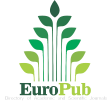From confrontation to understanding: In/exclusion of alternative voices in online discussion
Keywords:
Online discussions, immigration debate, internet and democracy, alternative voices, discourse analysisAbstract
This article examines the potential and limitations of the internet’s use for democratic debate. Academic literature on the potential uses of the internet to enhance democratic discussion in Western democracies almost always falls exclusively on one side of the optimist/pessimist divide. This article responds to the need for more situated knowledge, using an in-depth critical discourse analysis of the public debate on immigration in the Netherlands. The Dutch public debate on immigration and integration has been dominated in the past decade by a sense of deep ideological differences. The analysis conducted in this article reveals the power relations between the dominant and alternative discourses on immigration. It shows the ways in which online alternative voices deemed too radical by the mainstream public are excluded from participation in the public debate. The paper furthermore addresses the potential for understanding and for meaningful interaction across difference and illustrates the role of alternative styles of communication in online discussions. As such it contributes to our understanding of cross-cultural communication as well as that of online interaction. The study, though limited to case studies in the Netherlands, addresses a question relevant beyond the specific case and national context examined: how to establish meaningful interaction in light of difference?
Downloads
Published
How to Cite
Issue
Section
License
Copyright (c) 2011 Tamara Witschge

This work is licensed under a Creative Commons Attribution 4.0 International License.








